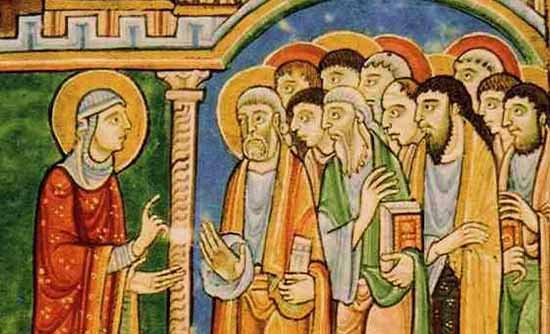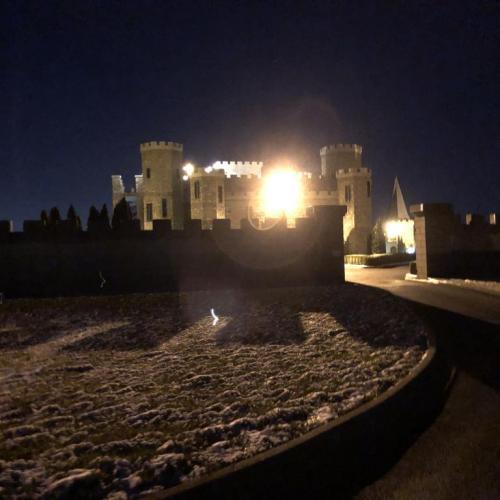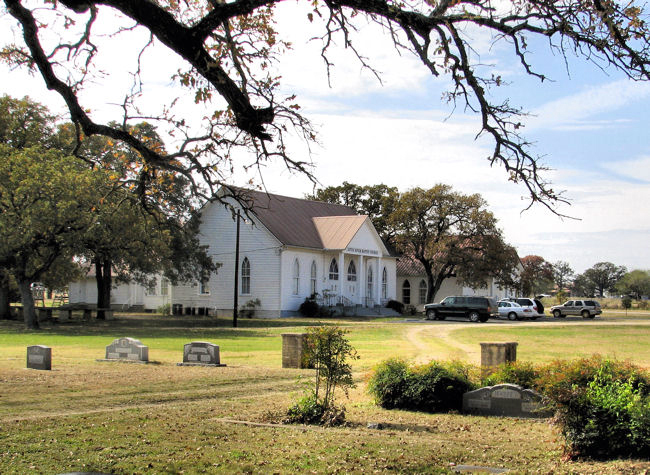Who Defines Preaching Anyway? Beth Moore and Catherine of Siena
I usually never read comments on my blogs, much less respond to them. But one recently caught my eye. It was posted on a twitter thread following a tweet by Katelyn Beaty about my last AB article posted by Scot McKnight on Jesus Creed (sorry, the social media world can be a confusing place…).
This is what it says:
“Women need to learn theology. Way way way too much eisigetic “teaching” today. Elizabeth Elliot witnessed and survived so, so much in her lifetime. I wouldn’t dismiss anything she wrote. On the other hand, Beth Moore, I dunno. Not so much.”
Interesting, isn’t it? It suggests Beth Moore is potentially suspect as a teacher because (1) she hasn’t learned theology and (2) her life experiences haven’t been sufficient to overcome her theology deficit. As the comment states, “Beth Moore, I dunno. Not so much.”
There is so much I could write about this comment. Kate Bowler, for example, suggested in her plenary session for the 2016 Conference on Faith and History that evangelical women today need a traumatic life event on which to build their speaking platform (or at least megaministry women). This comment, “Elizabeth Elliot witnessed and survived so, so much in her lifetime. I wouldn’t dismiss anything she wrote,” seems to affirm that.
For today, however, I just want to focus on the first part of the comment: “Women need to learn theology. Way way way too much eisigetic ‘teaching’ today.” For those of you unfamiliar with the word eisegetic (I think this is what the author meant), it means interpreting a text through the lens of your own ideas. Or, specifically to the point, reading into the Bible.
In other words: Beth Moore isn’t a trained theologian, so maybe she shouldn’t be teaching the Bible….
On the one hand, the statement is correct about Beth Moore’s education. Beth Moore does not have a degree in theology, biblical studies, nor any official seminary degree (although she does have a college degree and an honorary doctorate). On the other hand, however, the reason Beth Moore does not have formal biblical training is really interesting. Listen to what she says in her “An Open Letter to My Brothers.”
“I’ve been talked down to by male seminary students and held my tongue when I wanted to say, ‘Brother, I was getting up before dawn to pray and to pour over the Scriptures when you were still in your pull ups.’ Some will inevitably argue that the disrespect was not over gender but over my lack of formal education but that, too, largely goes back to issues of gender. Where was a woman in my generation and denomination to get seminary training to actually teach the Scriptures? I hoped it would be an avenue for me and applied and was accepted to Southwestern Seminary in 1988. After a short time of making the trek across Houston while my kids were in school, of reading the environment and coming to the realization of what my opportunities would and would not be, I took a different route. I turned to doctrine classes and tutors, read stacks of books and did my best to learn how to use commentaries and other Bible research tools. My road was messy but it was the only reasonable avenue open to me.”
Beth Moore, as a woman, faced gendered challenges to get a formal education. So she found another way. She bypassed traditional routes and became an educated and well-respected Bible teacher. She was the first woman to publish a Bible study book with LifeWay. Her books have “reached more than 21 million women worldwide,” and she has written “17 Bible studies translated into 17 languages.”
Beth Moore grew up in a world that denied her access to education like her male peers and denied her the titles of her male peers. But patriarchal limits did not limit God. Beth Moore may not fit modern notions of a trained theologian, but does that mean she isn’t a trained theologian?
Beth Moore reminds me so strongly of another woman who I teach about often in my medieval history and women’s history courses–Catherine of Siena.
For those of you who need to brush up on your medieval women’s history, I strongly recommend starting with Catherine of Siena. Born in 1347, right at the beginning of the onset of the Black Death in Europe, Catherine was the 25th child born in her family (although half of her brothers and sisters died in childhood). From a very young age she felt called by God to reject marriage, despite pressure from her family, and embrace a life of ascetism. At a relatively young age she already was corresponding with major religious and political figures who often sought her advice and spiritual counsel. Her influence was so substantial, including on the papacy itself, that Catherine of Siena is remembered today as a “papal counselor, politician, Doctor of the Church, preacher, spiritual advisor, and theologian.”
Like Beth Moore, Catherine of Siena did not receive formal training. She too had to bypass traditional routes. Instead of getting tutors, though, Catherine of Siena was taught by God. Her confessor, Raymond of Capua, records how God taught her to read. “Thus through her prayers did she learn miraculously how to read.” Catherine tells us that God also taught her to write. “He [God] fixed this aptitude in my mind in a marvelous manner, the way a teacher does when he gives his [male] pupil a model. As soon as you [God] had departed from me, with the glorious evangelist John and Thomas Aquinas, I began learning while still asleep. Forgive me for so much writing, since my hands and my tongue seek to be in harmony with my heart.”
Despite her impeccable informal training, as Carolyn Muessig reminds us, the medieval church (or at least dominant voices) taught that women should not preach. “Public preaching must be done by men because they are superior to women whereas women are inferior due to their sex.”
Yet, despite these limitations, Catherine of Siena did preach. Katherine Jansen describes her as a “renowned preacher” who was “acclaimed as such.” For example, Catherine’s confessor described how “another friar proclaimed that [Catherine] ‘preached’ herself and had no need of his sermon.” When Catherine doubted her calling, asking God how she could be used in a world of men. God called her to be brave and not forsake him. God spoke these words to her:
“You must know that in these latter days there has been such an upsurge of pride, especially in the case of men who image themselves to be learned or wise, that my justice cannot endure them any longer, without delivering a just chastisement upon them that will bring them to confusion..To confound their arrogance, I will raise up women ignorant and frail by nature but endowed with strength and divine wisdom…Therefore, be bravely obedient when in the future I send you out amongst people. Wherever you may find yourself I shall not forsake you, or fail to visit you, as is my custom, and direct you in all that you are to do.”
Some may not have formally recognized Catherine of Siena’s calling to preach, but God certainly did. And so did at least one man–her confessor Raymond of Capua.
Preaching comes in different forms, argues historian Carolyn Muessig. Catherine of Siena, like Hildegard of Bingen, were not prelates. They did not have the ecclesiastical titles of priest or bishop. But this didn’t keep them from preaching. “Female preaching was more widespread than first assumed…it came in different forms that was not scholastic,” argues Muessig. “Medieval preaching was variegated and frequently moved beyond neat classifications.” Women may not have held the titles of men and may not have preached like men, but that doesn’t mean they still weren’t preachers.
In short, Muessig makes a really interesting suggestion. The problem is not what women in medieval Europe were doing, or even that their influence was not recognized (Hildegard of Bingen, for example, received papal approval for her preaching). The problem is with our definitions. We define what medieval preaching is, just like we define what ‘senior pastor’ means, and our definitions exclude women.
Was Catherine of Siena not preaching because she wasn’t a priest? Is Beth Moore not a preacher because she isn’t pastor of a church?
Which matters more–our definitions for preaching or someone called by God faithfully doing the work of God?
Maybe it is time to expand our definitions to include, rather than exclude, women. Isn’t that what Jesus did?
Stay tuned for next time when I connect these dots and return to my Disrupting Christian Patriarchy series.






